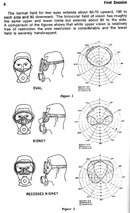mastakebob
Registered
Something I've always been curious about:
In SCUBA diving, why is 'low volume' considered a selling point for masks?
The only benefit I can think of is that they take less air to equalize and/or clear. But the difference between the amount of air needed to equalize a low volume mask and a high volume mask has to be trivial, right? Over the course of a dive, maybe a few seconds of air time? I can see this being crucial in something like free-diving, but not in SCUBA.
I would think that the differences in hydrodynamics of a low volume vs high volume mask is about as trivial as the air consumption differences.
A definite con of the low volume mask is that when you get water in your mask, it is that much closer to your eyes/nostrils, increasing the chances of irritation during the dive.
What am I missing? Is it an optics thing?
Thanks for any insight!
-Kevin
In SCUBA diving, why is 'low volume' considered a selling point for masks?
The only benefit I can think of is that they take less air to equalize and/or clear. But the difference between the amount of air needed to equalize a low volume mask and a high volume mask has to be trivial, right? Over the course of a dive, maybe a few seconds of air time? I can see this being crucial in something like free-diving, but not in SCUBA.
I would think that the differences in hydrodynamics of a low volume vs high volume mask is about as trivial as the air consumption differences.
A definite con of the low volume mask is that when you get water in your mask, it is that much closer to your eyes/nostrils, increasing the chances of irritation during the dive.
What am I missing? Is it an optics thing?
Thanks for any insight!
-Kevin





